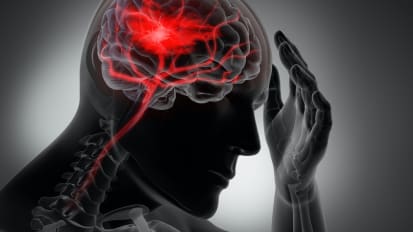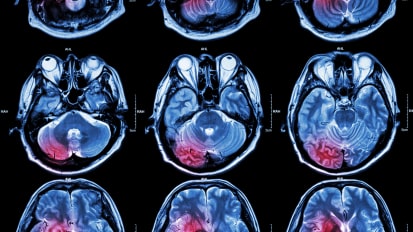Search
Showing 1 - 11 of 11 results
 Document
Document
UCSF MD Link: Web-Based Communication Portal for Physicians
Our web portal allows referring physicians to securely access their patients’ entire electronic health record, make online referral requests and communicate with our physicians directly and securely. Video
Video
Understand Childhood Ischemic Stroke – and Take Action
Pediatric neurologist and stroke specialist Christine Fox, MD, MAS, presents keys to identifying and treating children with ischemic stroke. In this short video, she covers risk factors, imaging modalities, evolving treatment strategies and secondary stroke prevention. Video
Video
AVM Bleeding in a Young Brain: Angiography as Part of the Solution
This five-minute video reviews the warning signs for arteriovenous malformations, discusses treatment goals for AVMs in the very young, and offers images that illuminate both the condition itself and keys to successful surgical resection. Video
Video
Get Up to Speed on Stroke: Understanding Causes and Preventing Recurrence
The director of UCSF’s stroke clinic, neurologist Karl Meisel, MD, presents the latest evidence-based strategies for evaluating and treating ischemic stroke and TIA, including new thoughts on medical management and post-event monitoring. Document
Document
Neurovascular Disease and Stroke Center
Providing initial evaluations, second opinions and follow-up care for the prevention, diagnosis and treatment of stroke and other neurovascular conditions. Document
Document
UCSF Certified as a Comprehensive Stroke Center
A LONGTIME PARTNER in ensuring the best care for your patients with neurovascular conditions, UCSF is now a certified Comprehensive Stroke Center, becoming the first such program in San Francisco to earn the Gold Seal of Approval. Video
Video
Stroke and COVID-19: Connections, Concerns and Care
Answering questions from both patients and doctors, our neurovascular disease experts discuss the higher risk of clotting disorders associated with severe SARS-CoV-2 illness and how to manage these cases. Video
Video
Burden of Stroke in Women
Vineeta Singh, MD, discusses stroke in women and the relationship between gender and symptoms, risk-factors, prevalence and mortality. Dr. Singh also examines stress and depression as a possible risk factor for stroke in women. Video
Video
Gender-Specific Differences in Stroke Clinical Presentation and Risk Factors
Vineeta Singh, MD discusses sex-specific risk factors in women – including oral contraceptive use, carotid disease and obesity -- and examines whether these risk factors are adequately assessed. Video
Video
Pregnancy Complications and Stroke Risk
Vineeta Singh, MD discusses the pregnancy- and post-pregnancy-associated risk factors for stroke and the management of these conditions. Video
Video
Gender-Specific Differences in Stroke Management and Outcome
Vineeta Singh, MD discusses gender-specific differences in primary and secondary stroke prevention, including an examination of gender-specific issues surrounding patient consent to receive an IV tissue plasminogen activator (tPA).


